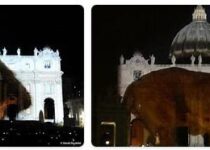Croatia History Part II
The Croatian-Muslim conflict in Bosnia and Herzegovina, a veritable war within the war, ended, at least officially, with the agreement signed in March 1994 for the formation of a Croatian-Muslim federation opposed to the Bosnian Serbs. The Croatian government therefore undertook to re-establish its dominion over its entire territory of Croatia proper, partly through agreements, partly through military operations: in 1995 its troops, with the political and material support of the United States, regained most of the territories which since independence had been occupied by the Serbs and constituted by them in the self- proclaimed Republic of Krajina; in 1998 the government regained control of Slavonia eastern (subject since January 1996 to the transitional administration of the UN). The relations between Croatia and Yugoslavia, positively marked, after five years of war, by the agreement signed in Athens (August 1996) by the Croatian president Franjo Tudjman (in office since 1990) and by the Yugoslav leader Milošević for mutual recognition, with related reports diplomatic, deteriorated in 1999, after NATO armed intervention against the Federal Republic of Yugoslavia. The death of Tudjman in December 1999, the subsequent defeat of his party (HDZ) in the general elections of January 2000, won by the center-left coalition (social democrats and liberals) of Ivica Racan and, above all, the victory of Stjepan Mesić (56%), candidate of the Popular Party, in the presidential elections of February 2000, marked a turning point in the history of Croatia, finally on the way to free itself of its nationalism and to give itself the structure of a European parliamentary democracy. However, tensions within the government and an economy that was struggling to take off meant that in the legislative elections of November 2003 the HDZ, led by Ivo Sanader, won.
In June 2004 the country started negotiations for EU membership, while the presidential elections of January 2005 were again won by Mesić. However, the pro-European policy of the post-Tuđjman Croatian governments has seen a decrease in consensus among public opinion, since the European institutions require as essential conditions for the entry of the State into the EU, the handing over of war criminals, including the figure of General Ante Gotovina – considered a hero by the Croats – in addition to the return of refugees from national minorities forced to leave the country in the 1990s. In fact, the accession negotiations, which should have reached a decisive stage starting from 17 March 2005, were blocked due to the failure to arrest General Gotovina and the lack of zeal with which the Croatian government implements the return programs for the 180,000 Serbian exiles, still refugees in Serbia and Montenegro and Bosnia and Herzegovina.
Following an attitude of greater collaboration on the part of the Croatian government, the negotiations started again starting from October 2005. According to intershippingrates, in November 2007 the legislative elections were held, which were narrowly won by the HDZ with 32% while the Social Democrats stood at 31%. Subsequently I. Sanader was reconfirmed prime minister. At the NATO summit in Bucharest in April 2008, Croatia was formally invited to join the organization. In June 2009, the premier resigned and the following month the parliament voted to trust Jadranka Kosor, the first woman to obtain this post in the country. In January 2010, the democratic candidate Ivo Josipovič won the ballot of the presidential elections with 64.6% of the vote, beating the mayor of Zagreb Milan Bandič. In June 2011, the European Commission announced the end of the country’s accession negotiations to the European Union; elections for the renewal of parliament were held in November, won by the center-left coalition Kukuriku, causing the conservatives of the HDZ to lose power, while in January 2012 the referendum on EU membership was held, with a clear victory of the favorable ones. In June 2013 the country joined the European Union.
Croatia Overview
(Republika Hrvatska). State of central-southern Europe (56,594 km²). Capital: Zagreb. Administrative division: counties (21). Population: 4,432,000 residents (2008 estimate). Language: Croatian. Religion: Catholics (87.8%), non-religious (5.2%), Orthodox (4.4%), Sunni Muslims (1.3%), Protestants (0.3%), other religions (1%). Monetary unit: kuna (100 lipa). Human Development Index: 0.862 (45th place). Borders: Slovenia and Hungary (N), Serbia and Montenegro (E), Bosnia and Herzegovina (S), Adriatic Sea (W). Member of: CEFTA, Council of Europe, EBRD, UN, OSCE and WTO, EU member state.



